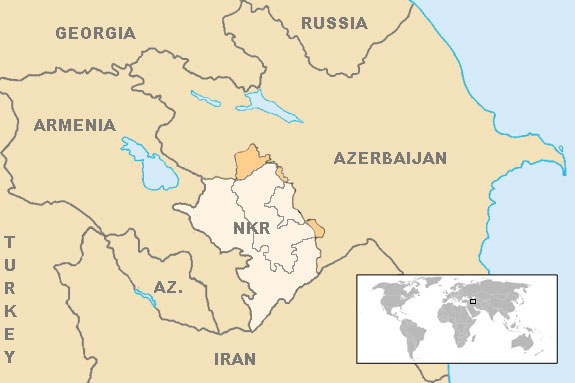Sponsored Content
Tensions Escalate in Nagorno-Karabakh: The International Community Calls for Immediate Action
The situation in Nagorno-Karabakh, the contested territory between Armenia and Azerbaijan, is once again on a knife's edge. Recent developments have escalated tensions, threatening regional stability and raising urgent humanitarian concerns. International organizations like the OSCE and UN are deeply concerned and have convened special meetings to address the issue.
 Even before the latest military escalation, the situation in Nagorno-Karabakh was catastrophic, with Azerbaijan blocking the only Armenian access road for months and food and medicine in short supply. / Picture: © Wikimedia Commons / en:User:VartanM. World inset added by en:User:Kmusser. [Public Domain]
Even before the latest military escalation, the situation in Nagorno-Karabakh was catastrophic, with Azerbaijan blocking the only Armenian access road for months and food and medicine in short supply. / Picture: © Wikimedia Commons / en:User:VartanM. World inset added by en:User:Kmusser. [Public Domain]
The armed forces of Azerbaijan initiated what has been termed a "large-scale aggression" against Nagorno-Karabakh. According to Ambassador Armen Papikyan, the Permanent Representative of Armenia to the OSCE, Azerbaijani forces deliberately targeted civilian infrastructure, including the capital city of Stepanakert. Papikyan stressed that the ongoing blockade of the Lachin Corridor and…
or Log In
Fast News Search





